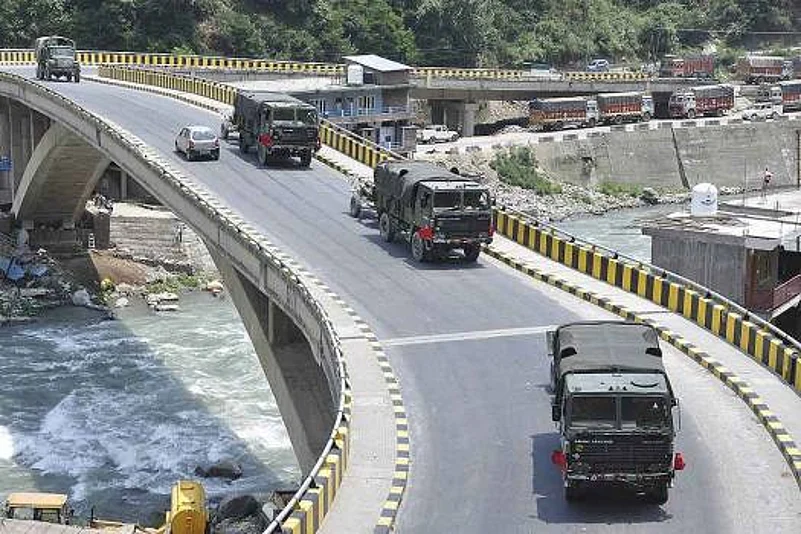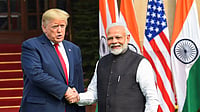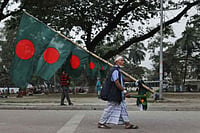A day after India trashed the Chinese Army's claim of sovereignty over the Galwan Valley and asked Beijing to confine its activities to its side of the LAC, China's foreign ministry claimed that the Galwan Valley was on the Chinese side of the Line of Actual Control.
India has already dismissed China's claim of sovereignty over the Galwan Valley, saying such "exaggerated" and "untenable" claims are contrary to the understanding reached during a high-level military dialogue on June 6.
During a media briefing in Beijing, the Chinese Foreign Ministry Spokesperson Zhao Lijian again blamed India for the violent face-off in eastern Ladakh on the night of June 15 in which 20 Indian soldiers, including a Colonel, were killed.
Zhao's reiteration of Beijing's claim over the Galwan Valley came a day after the External Affairs Ministry in New Delhi said "given its responsible approach to border management, India is very clear that all its activities are always within the Indian side of the Line of Actual Control (LAC). We expect the Chinese side to also confine it’s activities to it’s side of the LAC."
China's Foreign Ministry spokesperson in a statement gave a step-by-step account of the Galwan clash and elaborated China's position on settling this incident.
"For many years, the Chinese border troops have been patrolling and on duty in this region. Since April this year, the Indian border troops have unilaterally and continuously built roads, bridges and other facilities at the LAC in the Galwan Valley. China has lodged representations and protests on multiple occasions but India has gone even further to cross the LAC and make provocations," the foreign ministry statement read.
"By the early morning of May 6, the Indian border troops, who have crossed the LAC by night and trespassed into China's territory, have built fortification and barricades, which impeded the patrol of Chinese border troops," it read.
"They deliberately made provocations in an attempt to unilaterally change the status quo of control and management. The Chinese border troops have been forced to take necessary measures to respond to the situation on the ground and strengthen management and control in the border areas," read the statement.
In order to ease the situation, China and India have stayed in close communication through military and diplomatic channels, said China Foreign Ministry, Spokesperson.
"In response to the strong demand of the Chinese side, India agreed to withdraw the personnel who crossed the LAC and demolish the facilities, and so they did. On June 6, the border troops of both countries held a commander-level meeting and reached consensus on easing the situation. The Indian side promised that they would not cross the estuary of the Galwan river to patrol and build facilities and the two sides would discuss and decide phased withdrawal of troops through the meetings between commanders on the ground," it added.
The foreign ministry statement also termed it "shocking for Indian troops to have once again crossed the Line of Actual Control for deliberate provocation when the situation in the Galwan Valley was already easing, and even violently attacked the Chinese officers and soldiers who went there for negotiation, thus triggering fierce physical conflicts and causing casualties on the evening of June 15".
Zhao also said “a second commander-level meeting should happen as soon as possible to deal with the situation on the ground”.
“The two sides agreed to handle in a just manner the serious situation caused by the Galwan Valley clash, observe the agreement reached during the commander-level meeting, cool down the situation on the ground as soon as possible, and uphold peace and tranquility of the border areas in accordance with bilateral agreements reached so far,” he said.
“China hopes that India will work with us, follow faithfully the important consensus reached between the two leaders, abide by the agreements reached between the two governments, and strengthen communication and coordination on properly managing the current situation through diplomatic and military channels, and jointly uphold peace and stability in the border areas,” Zhao said.
(With agency inputs)

























